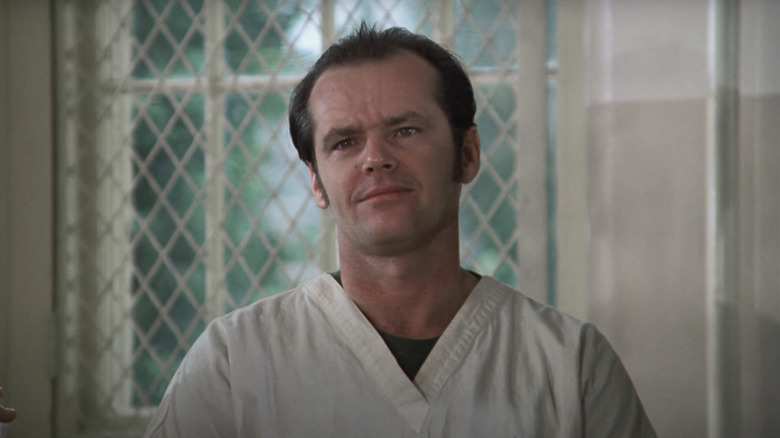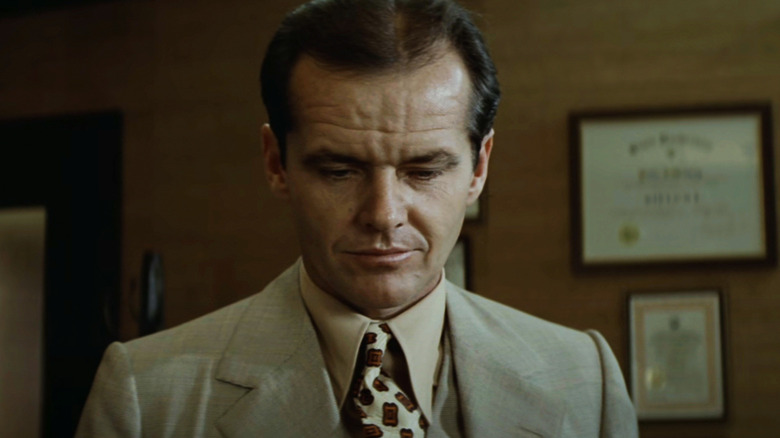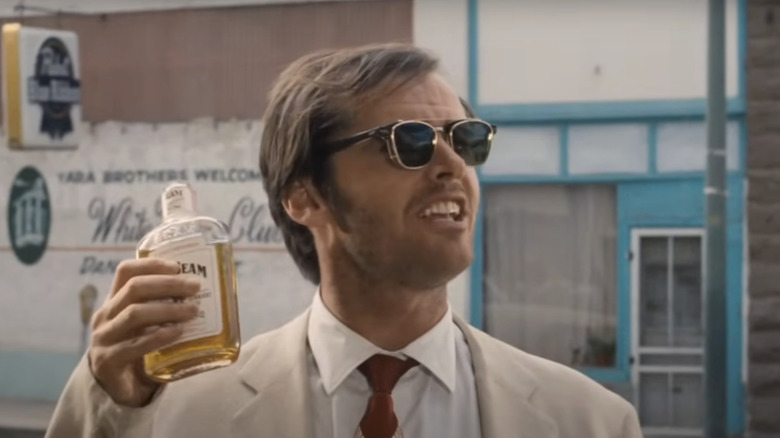
Jack Nicholson disappeared from Hollywood after what was an anticlimactic end to one of the greatest film careers of all time with 2010’s “How Do You Know?” The movie saw Nicholson play the head of a big firm for which Paul Rudd’s George works. If that doesn’t sound like the best use of a screen legend, it wasn’t. “How Do You Know?” ended up being a star-studded box office flop, with reviewers chastising writer/director James L. Brooks for wasting such impressive talent.
“How Do You Know?” starred Reese Witherspoon, Paul Rudd, and Owen Wilson but surely the biggest waste was Nicholson himself, especially considering he ended his venerable on-screen career with this movie. By this point, Nicholson didn’t need to do anything. In fact, he hadn’t needed to do anything since he signed a bonkers deal with Warner Bros. for starring as the Joker in 1989’s “Batman” and made somewhere in the region of $50 million. But despite his roguish reputation, Nicholson was not just in Hollywood for the money or indeed the fame.
The actor had impressed the New York Times‘ Ron Rosenbaum back in 1986 with his depth of knowledge and sincere commitment to his craft. The writer noted how, in his early days, Nicholson would go “from acting teacher to acting teacher seeking truth,” and that thirst for understanding never really seemed to leave him. It also developed in him a technique for really getting to the heart of his characters. Namely, Nicholson would identify a single “secret” that unlocked his role, and he did this for every single part he ever played.
The key to a Jack Nicholson performance
Stanley Kubrick, who directed Jack Nicholson in 1980’s “The Shining,” said that his star brought one “unactable” quality to his profession. That quality was intelligence. All the while Nicholson cultivated this rakish public persona, he remained deeply thoughtful — something which Ron Rosenbaum noted when he spoke to the star back in ’86, writing about how during his early career, the actor would, “sit around in Los Angeles coffee houses for hours discussing Stanislavskian metaphysics with similarly inclined cinema theorists.”
As Nicholson’s career took off in the wake of his breakout role in 1969’s “Easy Rider,” he applied that thoughtfulness to his roles, with Rosenbaum explaining how the actor was always “looking for some ‘secret’ to the role, some inner emotional dynamic, a prop, a piece of business, that captures for him the essence of his character’s nature.” Nicholson explained how he devised a “secret” for every part, but initially remained cagey on the subject when asked to reveal his “secret” for his role as the devil himself in “The Witches of Eastwick,” saying, “I’ll feel revealed… That’s a very primary thing I was taught — you never give these secrets out, certainly not before you’ve done the thing, because you’ll feel exposed.”
Luckily for us, Nicholson then went on to do exactly what he said he was taught never to do, and he revealed several of his “secrets.” For his seminal performance in 1975’s “One Flew Over the Cuckoo’s Nest,” for example, he claimed that the secret was “not in the book,” adding:
“My secret design for it was that this guy’s a scamp who knows he’s irresistible to women, and in reality, he expects Nurse Ratched to be seduced by him. This is his tragic flaw. This is why he ultimately fails. I discussed this with Louise [Fletcher, co-star and Nurse Ratched actor].’I discussed this only with her. That’s what I felt was actually happening with that character – it was one long, unsuccessful seduction which the guy was so pathologically sure of.”
This wasn’t the only secret of Nicholson’s that had to do with sleeping with someone either…
Nicholson’s secrets to Chinatown and Easy Rider
Further explaining his process of using “secrets” to motivate his performances, Jack Nicholson used “Chinatown,” in which he plays private investigator J.J. Gittes, as an example. This time, however, the secret had to do with his off-screen shenanigans.
“There was a kind of triangular offstage situation,” said the actor. “I had just started going with [co-star] John Huston’s daughter, which the world might not have been aware of, but it could actually feed the moment-to-moment reality of my scene with him.” Nicholson has described Huston as a surrogate father, so perhaps sleeping with his daughter, Angelica Huston, really did allow him to break out of that sort of intense a bond with his co-star — though it seems like less of a secret to his performance and more of Jack living up to his public reputation. Nicholson also slapped Faye Dunaway for real (with her permission) in “Chinatown,” which will always help to sell the performance and seems like a pretty effective “secret” in and of itself.
Elsewhere, the actor revealed that he used his father’s own sunglasses for his role as George Hanson in “Easy Rider,” with Nicholson saying, “It’s not necessarily meant for a result but for what it does for you.”
He also spoke about a climatic scene in 1981 historical drama “Reds,” which required him to hand his co-star Diane Keaton a poem. The star revealed that he actually gave Keaton a real poem. “That poem I gave to Miss Keaton,” he said. “I wrote a real poem that was extremely revealing […] It’s the kind of thing no one else sees, but you know it’s there. And believe me, I did not misplace that prop.”
What was Nicholson’s “secret” for playing the CEO in “How Do You Know?” I guess that’s something we’ll never know, since the man has completely disappeared from the industry (though he did pop into a Lakers game in 2023). But it would be interesting to learn if he was still using this technique by that point — though it really seems like no “secret” could have saved that particular movie.




Leave a Reply